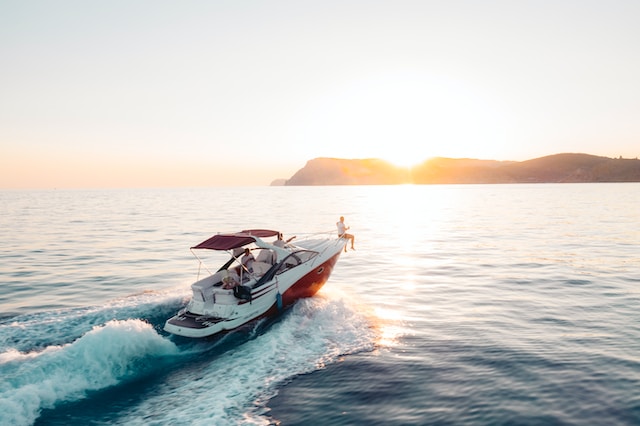Whether your boat is a racer or simply your family’s weekend pleasure ride, there are ways to fine-tune it for better performance. This can result in a smoother, safer, and faster boating experience and save money at the gas pump.
Trim tabs can help you improve efficiency by reducing gearcase drag and increasing hull-wetted surface at high speeds. However, there’s a point at which less trim reduces responsiveness.
Contents
Propellers
Propeller diameter and pitch are the two most important characteristics when selecting a propeller. A prop must have a size that allows the engine to run at its optimum rated rpm level as the manufacturer sets. Choosing too small a pitch can cause the engine to exceed its WOT rpm, straining the engine and possibly damaging it or setting up a rev limiter.
To determine if your prop is working its best, keep a log of your boat’s performance as it is currently propelled. Record speed and running angle, propeller rpm, and fuel consumption at all rpm settings (using a clinometer is ideal). Floats that suffer from handling problems such as porpoising or falling off the plane on hard turns can be resolved by changing the propeller; you can find the best deals at reputable companies like Attwood replacement parts. A larger diameter or a lower pitch may improve performance in these cases.
Fuel Pump
Many in-tank mechanical fuel pumps and even some electric ones have trouble generating enough pressure to keep the pump cool. This can be resolved in many instances by frequently filling the tank to the top and utilizing a fuel filter.
Another way to optimize the performance of an in-line electric fuel pump is to mount it in a location protected from chassis flex and road debris that adheres to the manufacturer’s installation specifications. It is also a good idea to remove any unnecessary restrictions in the fuel system that could restrict fuel flow.
When choosing a fuel pump, it is essential to consider the fuel volume it can discharge (pump) rather than its physical size. Most companies rate their pumps in gallons-per-hour or liters-per-hour of free flow. A higher-flow fuel pump generally produces more pressure, which is a plus in EFI or carbureted application power systems that require consistent base fuel pressure.
Fuel Filters
Fuel filters keep unwanted debris from entering a machine’s fuel system, which ensures optimized performance and longer-lasting components. In addition to blocking contaminants, fuel filters can match fuel flow to maximum demand to prevent fuel starvation.
When a filter gets clogged, it forces the fuel pump to work harder to maintain proper pressure. This will wear out the pump and cause it to lose efficiency. It will also cause the injectors to stay open longer, which wastes fuel and can damage the injection system.
To combat these issues, manufacturers have started to utilize new filtration media types that allow for better particulate removal and can maintain good element life. Ethanol-Tolerant Fuel Filters are designed to be compatible with outdoor power equipment running on ethanol-based fuels. They feature a unique water drain plug and additional functions, such as fuel heating, to improve engine performance.
Fuel Tanks
Only a few boaters think about fuel tanks unless they install a new tank, replace an old one, or have a damaged one. Keeping your fuel tank in good condition will help you maximize performance and extend its life.
A few different types of marine fuel tanks are available, including aluminum and plastic. Aluminum tanks tend to be the most durable, but they are also more costly. Plastic tanks are less expensive and can last long, but they may have a higher risk of punctures or leaks than aluminum ones.
Whether you choose an aluminum tank or a plastic marine fuel tank, ensure the internal design is optimized to provide adequate fuel flow potential within the base/belly of the tank. Additionally, remember that the type of fuel you use and the amount of water in the bottom of your tank (which can cause a galvanic reaction throughout the entire system) should be considered when selecting the right fuel tank for your needs.





